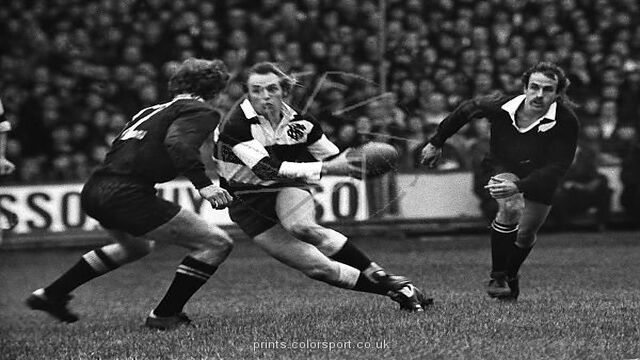Is the congested calendar slowly killing the game?
Exeter Chiefs’ recent Aviva Premiership victory over Sale Sharks was not exactly easy on the eye.
As a result I doubt many made it all the way through to the end of the game where arguably the most compelling contribution was made by Chiefs boss Rob Baxter whose words should serve as a warning call to anyone currently involved in the elite game.
“I would love to sit here and apologise,” he said in the immediate aftermath of his side’s largely uneventful 10-6 win at the AJ Bell Stadium. “Obviously what we want on TV and what we want in the Premiership is more rugby played, more tries scored and a higher level of game."
“The problem is on the back of what we have had the last few weeks, to come here to Sale on a Friday night against a team that are very good here at home and have always made it difficult for us, we’ve actually had to come here and talk about how we were going to grind the win out, make the win happen and that actually became more important than the performance.”
His words will have washed over most still tuned in to BT Sport as the majority of such post-match analysis fails to register on the Richter scale but this statement deserves greater attention and wider exposure amid the ongoing debate about the physical and mental demands of what is quite clearly an over-congested season.
In fact, it should be setting off alarms at Premiership Rugby, World Rugby, the Rugby Football Union and in the offices of every other stakeholder in the game.
In essence, Baxter is saying that the brutal nature of the northern hemisphere season and the ridiculous demands on his players – who had criss-crossed the continent in the Champions Cup over the previous two weeks – has a detrimental effect on the type of rugby his side can produce week to week.
He is also admitting that this in turn has a negative impact on the quality of the finished product and makes it impossible for his side to deliver the kind of eye-popping spectacle that fans, Premiership Rugby and TV and commercial partners crave.
Observers ‘outside’ the game have long warned of a similar toll and the players themselves are also slowly finding their voice on the subject as they bid to secure their physical wellbeing and their future earning potential.
But rarely, if at all, does a coach weigh in on the subject, admit the sport is beating itself up and suggest his team are perhaps playing too many matches that in turn pay his salary.
It is a brave call and one from someone who perhaps sees beyond the balance sheet to the people whose lives he manages and the sport he loves.
If you want further evidence of the madness of the over-crowded global calendar then cast an eye over the side that the Barbarians will field against New Zealand at Twickenham on Saturday.
Not one Home Nations player features in a squad and what could have been a great advert for the game will be little more than a contest for Kiwi bragging rights with the Baa-Baas set to draw on a squad including 13 New Zealanders, nine South Africans, three Australians and just one European player – Italian flanker Simone Favaro.
Without doubt the Barbarians squad is brimming with talent – with recent All Black wing Julian Savea a notable inclusion – but you can understand the All Blacks’ murmured frustrations at the familiar faces they will face in a fixture that is part of the 125th anniversary celebrations for the New Zealand Rugby Union.
It is a major missed opportunity and another sad reflection of the damaging lack of harmony in the modern game with various parties unable to provide a workable framework or one that even allows for the kind of breathing space that would ensure the release of high-profile Home Nations players.
It is sadly some way from the epic clash between the same sides back in 1973 when an entirely Home Nations-based Barbarians side featuring future legends of the game such as Gareth Edwards, Willie John McBride and Mike Gibson recorded a memorable victory and notched ‘the greatest try ever scored’ in the process.
We may have been blessed recently with a great Test series showdown between the All Blacks and the British & Irish Lions, but imagine a similarly star-studded Barbarians side featuring the biggest names in the northern hemisphere, enthused by the freedom to play that comes with the famous black and white hooped jersey, taking on the world champions at a capacity Twickenham?
What fun everyone, fans old and new, could have had.
If you wanted even more evidence of the somewhat ludicrous nature of the current season then scan the fixtures elsewhere this weekend.
The Anglo-Welsh Cup, a development competition for the leading English and Welsh clubs that often struggles in terms of profile, kicks off without a key element – the Welsh clubs.
Wales’ regional sides will be doing battle with their PRO14 rivals in the latest round of that cross-border competition before joining the Anglo-Welsh contest a week later. It is almost laughable.
Enough is enough. It’s time to put individual interests aside.
Action must be taken to preserve the welfare of the players, the commercial viability of the game, the reputation of those in charge and the very future of the sport. Before it is too late.


